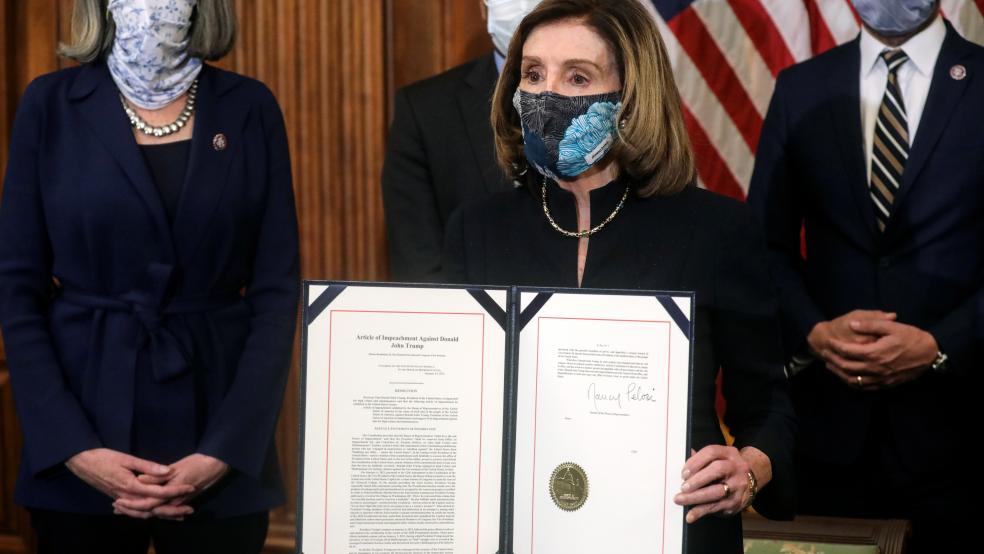The House on Wednesday impeached President Trump for the second time in 13 months, this time for “incitement of insurrection” for his role in trying to overturn the results of the election and encouraging a mob of supporters to march on the Capitol a week ago as Congress was affirming President-elect Joe Biden’s victory.
Trump, already one of only three presidents to be impeached, becomes the first president to be impeached twice.
Unlike in December 2019, when all House Republicans opposed Trump’s first impeachment and defended the president, 10 Republicans joined Democrats Wednesday in supporting the incitement charge, making it the most bipartisan impeachment vote in U.S. history. The final tally was 232 to 197.
Still, the vote followed hours of impassioned debate during which Democrats and Republicans argued whether the impeachment was the most appropriate remedy with just seven days left in Trump’s term, whether the process was too rushed and whether it would help reestablish democratic norms and ensure the safety of the republic or further inflame the divisions that have riven the nation.
Speaker Nancy Pelosi told lawmakers that Trump must be impeached, and convicted by the Senate.
“We know we experienced the insurrection that violated the sanctity of the people's capital and attempted to overturn the duly recorded will of the American people. And we know that the President of the United States incited this insurrection, this armed rebellion against our common country,” she said. “He must go. He is a clear and present danger to the nation that we all love.”
She later added: “It gives me no pleasure to say this — it breaks my heart.”
Few Republicans defended Trump, with many instead criticizing the impeachment process or comparing the storming of the Capitol and the effort to stop the constitutional election process to last year’s Black Lives Matter protests.
House Minority Leader Kevin McCarthy (R-CA), who in November had propagated Trump’s false claim that he won the election and objected to certification of the Electoral College results, on Wednesday said that Biden had won the election. He criticized last week’s violence and said that Trump “bears responsibility” for the attack on the Capitol. But he warned that impeachment would “further fan the flames of partisan division” and said that a fact-finding commission and a censure resolution instead “would be prudent.”
Trump told reporters Tuesday that his speech to supporters gathered in Washington last week was “totally appropriate” and that another impeachment push was “causing tremendous anger.” On Wednesday, the president called on Americans to help ensure a peaceful and orderly transition of power, saying in a statement that “there must be NO violence, NO lawbreaking and NO vandalism of any kind.”
What’s next: The timing of a Senate trial remains uncertain. Senate Majority Leader Mitch McConnell (R-KY) will not agree to a Democratic request to bring the Senate back into session before its scheduled January 19 return, meaning that a trial won’t happen until after Trump is out of office. The timing of a trial will also depend on when the House sends the article of impeachment to the Senate.
McConnell told GOP colleagues Wednesday that he has not made a final decision on whether he will vote to convict Trump. The New York Times reported Tuesday that McConnell has told associates that he believes Trump’s actions are impeachable — and that he was pleased that the impeachment effort would make it easier for the Republican Party to move on from Trump.





